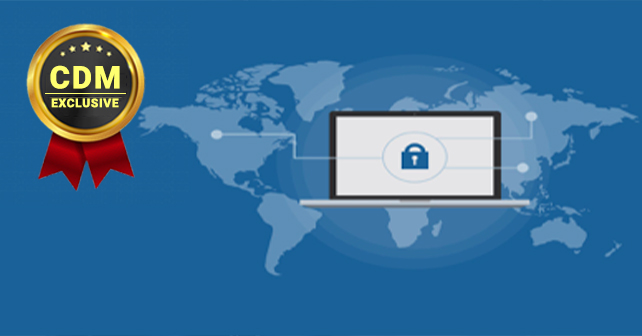by Luke Adshead, Cyber Security Tips for Business Travelers, Northdoor
It doesn’t matter whether you are traveling the world to ‘find yourself’ or you are on a business trip from NY to London for a big meeting. All types of traveling can pose various cybersecurity threats to your mobile phones and other devices. All of your devices will be carrying sensitive data, both personal and business related, so it is imperative you do everything you can to protect your work as much as possible, especially if you are using IBM Power 9 processor and have loads of important and sensitive data If you are wondering what you more you can do to protect your information, read our top cybersecurity tips for business travelers or anyone going on holiday abroad.
Lock Devices
Many smart devices such as mobile phones, laptops, and tablets come equipped with security settings that are there to prevent unwanted parties from gaining access to your device and having your information at their disposal. They, therefore, have set security measures in places such as PIN numbers and fingerprint ID’s. You should set up either a pin or a fingerprint on every device you own in order to prevent people from being able to get into said devices. Once the pin has been set up or fingerprint has been set up, make sure to lock all of your devices every time you are not using them to make sure they are always as secure as possible.
Public Wi-Fi
Free Wi-Fi access is very appealing to business or leisure travelers who are working on the go and would like to save some of their data. The problem with public Wi-Fi is that is particularly vulnerable to security issues. Make sure to stay away from unencrypted Wi-Fi networks and ask your hotel about its internet security protocol before connecting to the web. If you absolutely must use a Wi-Fi hotspot, make sure that you do not access any personal account or sensitive data.
Disable Auto-Connect
Many mobile phones have a certain setting that will allow a phone or tablet to automatically connect to Wi-Fi hotspots as you pass through them on your daily routine. This is, of course, a nice feature when used at home, although it’s not something you should allow while traveling abroad. Before you travel, change this setting so that your smartphone and laptop must be manually connected each time you wish to access the Web.
Install Anti-Virus
This definitely one of the most successful ways you can keep your personal information, as well as business information, safe while traveling. Alongside using an established security company, make sure that you frequently update this software as new versions become accessible.
Update Passwords
Make sure to change all of your passwords before you go traveling. It is also important that if you are asked to input a PIN for your safety in your hotel or hostel, you use a unique PIN number that you have not used before in order to prevent people who might find out your regularly used PINs from breaking in and having access to all your most valuable possessions.
About the Author
 Luke was brought up in East London where he learned a love for reading at writing at a very young age. He studies English Literature and English Language at University and now pursues his passion for writing and learning as much as he can about the digital world. In his spare time, he reads a lot of books and plays tennis.
Luke was brought up in East London where he learned a love for reading at writing at a very young age. He studies English Literature and English Language at University and now pursues his passion for writing and learning as much as he can about the digital world. In his spare time, he reads a lot of books and plays tennis.


